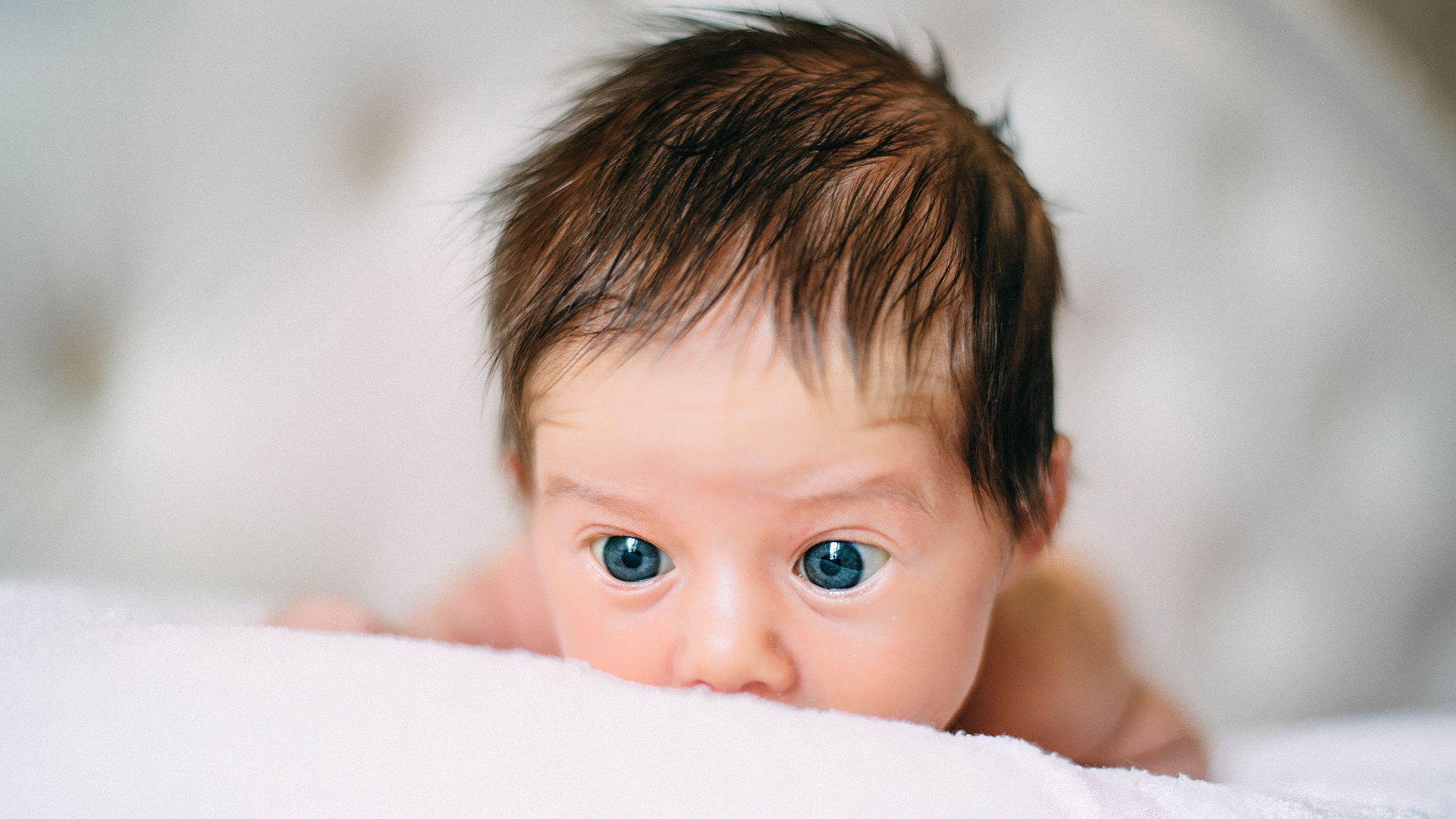As an expectant mother, you may be curious about when your little one starts developing hair. It’s a natural question to ask and one that many other pregnant women have wondered about. The answer is not as straightforward as you might think. Several factors can influence hair growth in the womb, such as genetics, ethnicity, and other biological factors.
Table of Contents
What Is Fetal Hair?
Fetal hair is the very first hair that grows on a developing baby’s body. It typically starts growing around the third or fourth month of pregnancy. This hair is thin, soft, and usually colorless or white. The hair covers the entire body of the developing baby, including the face, arms, legs, and torso. The hair serves several functions, including temperature regulation and protection against amniotic fluid.
Around the fifth or sixth month of pregnancy, the hair on the baby’s head starts to grow. It’s still very soft and fine, but it’s usually darker than the hair on the rest of the body. The hair on the head grows from hair follicles that are present on the scalp before birth. These hair follicles are formed during fetal development and are responsible for hair growth throughout life.
When Do Babies Start To Develop Hair In The Womb?
Babies start to develop hair in the womb as early as nine weeks into pregnancy. However, the hair is usually not visible until the third or fourth month of pregnancy. The amount and thickness of fetal hair can vary widely between different babies and different ethnicities. Some babies may have a full head of hair at birth, while others may have very little.
Genetics also plays a role in fetal hair growth. If either parent has a lot of hair, it’s more likely that the baby will have a lot of hair as well. Similarly, if both parents have thin hair, the baby is more likely to have thin hair. However, it’s not a guarantee, and there can be variations in hair growth even among siblings.
What Factors Affect Fetal Hair Growth?
Several factors can affect fetal hair growth. One of the most important is genetics. As mentioned earlier, if either parent has a lot of hair, it’s more likely that the baby will have a lot of hair as well.
Another factor that can influence fetal hair growth is the mother’s hormones. Hormones play a crucial role in the development of the baby’s body, including the growth of hair. Changes in hormone levels can affect fetal hair growth, but it’s not clear how much of an impact they have.
Finally, the baby’s environment can also affect fetal hair growth. For example, if the mother has a high fever or is taking certain medications, it can affect the baby’s hair growth.
When Does Fetal Hair Fall Out?
Fetal hair, also known as lanugo, typically falls out before birth. Most babies lose their lanugo between 30 and 36 weeks of pregnancy. It’s a natural process that is part of the baby’s preparation for birth. The lanugo is replaced by a thicker, more permanent hair that will grow throughout the baby’s life.
In some cases, babies may be born with some lanugo still present on their bodies. This is usually not a cause for concern and will fall out within a few weeks after birth.
 Source: bing.com
Source: bing.comConclusion
In conclusion, fetal hair growth is a natural process that starts as early as nine weeks into pregnancy. Genetics, hormones, and the baby’s environment can all affect hair growth in the womb. Most babies will lose their lanugo before birth, and their permanent hair will continue to grow throughout their lives.
If you have any concerns about your baby’s hair growth or development, it’s always best to talk to your healthcare provider. They can provide you with more information and answer any questions you may have.
Frequently Asked Questions About When Do Babies Start To Develop Hair In The Womb
Q: Is it true that heartburn during pregnancy means the baby will have a lot of hair?
A: There is some truth to this old wives’ tale. Studies have shown that there is a correlation between heartburn during pregnancy and fetal hair growth. However, it’s not a guarantee, and many babies with little hair have mothers who experience heartburn.
Q: Do premature babies have less hair?
A: Premature babies may have less hair than full-term babies, but this is not always the case. Hair growth in premature babies can vary widely depending on a variety of factors.
Q: Can you predict the amount of hair a baby will have at birth?
A: It’s difficult to predict the amount of hair a baby will have at birth, but genetics can play a role. If both parents have a lot of hair, it’s more likely that the baby will have a lot of hair as well. However, there can be variations in hair growth even among siblings.
Q: Is it normal for babies to be born with a lot of hair?
A: Yes, it’s normal for babies to be born with a lot of hair. Some babies may have a full head of hair at birth, while others may have very little. It’s all part of the natural variation in hair growth in babies.
Q: Can prenatal vitamins affect fetal hair growth?
A: Prenatal vitamins are essential for the healthy development of the baby, but there is no evidence to suggest that they can affect fetal hair growth. However, a healthy diet that includes essential nutrients can help support overall fetal development, including hair growth.
Related video of When Do Babies Start To Develop Hair In The Womb?
https://youtube.com/watch?v=X3JiWkfPbqY
